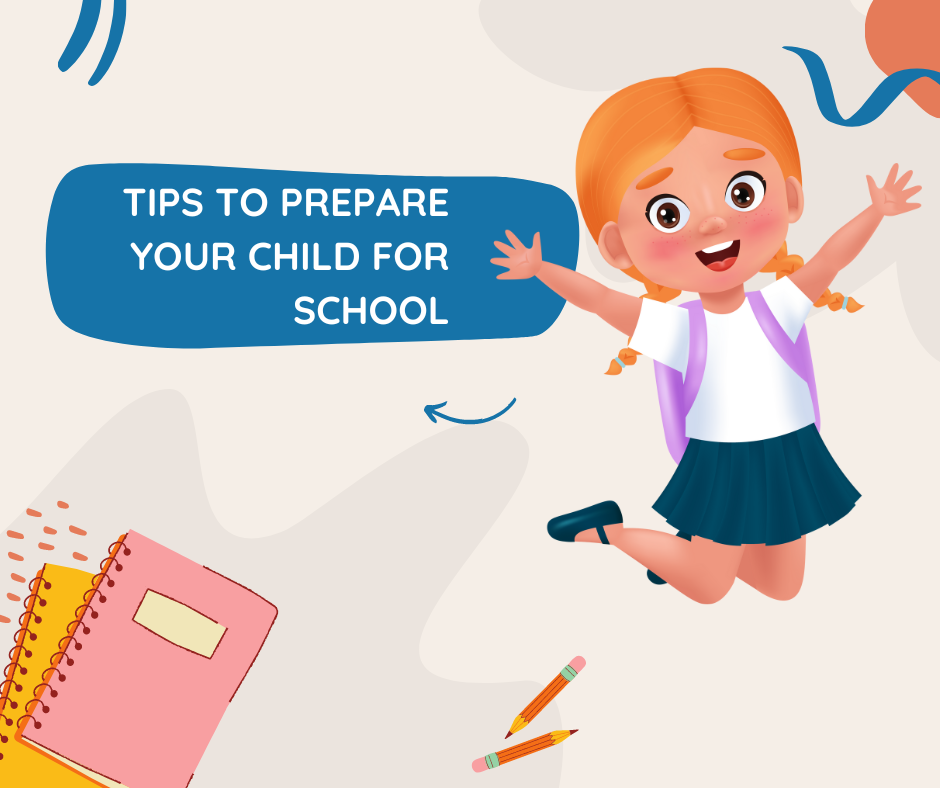As a parent, sending your child to school can be both an exciting and nerve-wracking experience. While it’s exciting to see your child grow and learn, it’s also normal to worry about how they’ll handle the transition to a new environment. To make the process as smooth as possible, there are several things you can do to prepare your child for school. In this article, we’ll discuss some helpful tips to make sure your child is ready to start school on the right foot.
- Start talking about school early
It’s important to start talking to your child about school early on, even if they’re too young to fully understand what it means. You can mention school in passing, read books about school, or watch shows that depict school settings. Doing this will help build familiarity with the concept of school and make the idea less daunting for your child.
- Visit the school
Taking your child to visit their future school is a great way to help them feel more comfortable with the idea of starting school. Many schools offer tours or orientation programs for incoming students, so take advantage of these opportunities if they’re available. Walking around the school grounds, seeing the classrooms, and meeting some of the staff can help your child feel more at ease about starting school.
- Create a routine
Children thrive on routine, so it’s a good idea to start creating a school-day routine before the school year begins. This can include setting regular wake-up and bedtimes, planning meals and snacks, and scheduling activities like reading time or playtime. Having a routine in place will help your child feel more secure and give them a sense of predictability in their day.
- Practice self-help skills
It’s important for children to have some level of independence when starting school. Encourage your child to practice self-help skills like using the bathroom, washing their hands, and putting on their shoes and jacket. By teaching them these skills early on, they’ll be better equipped to handle these tasks on their own once they start school.
- Encourage socialization
Starting school can be an intimidating experience for many children, especially if they don’t have much experience socializing with peers. Encourage your child to engage in social activities with other children their age, whether it’s through playgroups, sports, or other activities. This will help your child develop social skills and feel more comfortable in a group setting.
- Read books about starting school
Reading books about starting school is a great way to help your child understand what to expect and feel more prepared for the experience. There are many books available that address common concerns and fears children may have about starting school, such as separation anxiety, making friends, and following rules. Reading these books with your child can help them feel more confident and less anxious about starting school.
- Talk about emotions
Starting school can be an emotional experience for both parents and children. It’s important to acknowledge and validate your child’s feelings, whether they’re excited, nervous, or scared. Talk to your child about their emotions and let them know that it’s okay to feel a range of emotions about starting school. Encourage them to express their feelings openly and reassure them that you’re there to support them through the transition.
- Get organized
Starting school can be a busy and hectic time, so it’s important to get organized ahead of time. Make sure your child has all the necessary supplies and materials, such as backpacks, lunchboxes, and school supplies. Label all of your child’s belongings with their name to avoid confusion and loss. Having everything organized and in its place will help your child feel more prepared and less stressed about starting school.
- Establish good sleep habits
Getting enough sleep is essential for your child’s physical and mental health, as well as their ability to learn and concentrate in school. It’s important to establish good sleep habits before the start of the school year, such as setting a consistent bedtime and wake-up time, creating a relaxing bedtime routine, and ensuring that your child’s bedroom is quiet, dark, and comfortable.
- Practice separation
One of the biggest challenges for children starting school is separating from their parents or caregivers. To make the transition easier, practice separation by gradually increasing the amount of time your child spends away from you. Start with short periods of separation, such as leaving your child with a trusted family member or friend, and gradually increase the duration of separation over time. This will help your child become more comfortable with being away from you and make the transition to school easier.
In conclusion, preparing your child for school is an important part of ensuring a successful start to their academic journey. By starting early, establishing routines, and practicing important skills, you can help your child feel confident and prepared for the transition to school. Remember to be patient, supportive, and encouraging throughout the process, and don’t hesitate to reach out to teachers, home tutors or other professionals if you have any concerns or questions about your child’s readiness for school.







